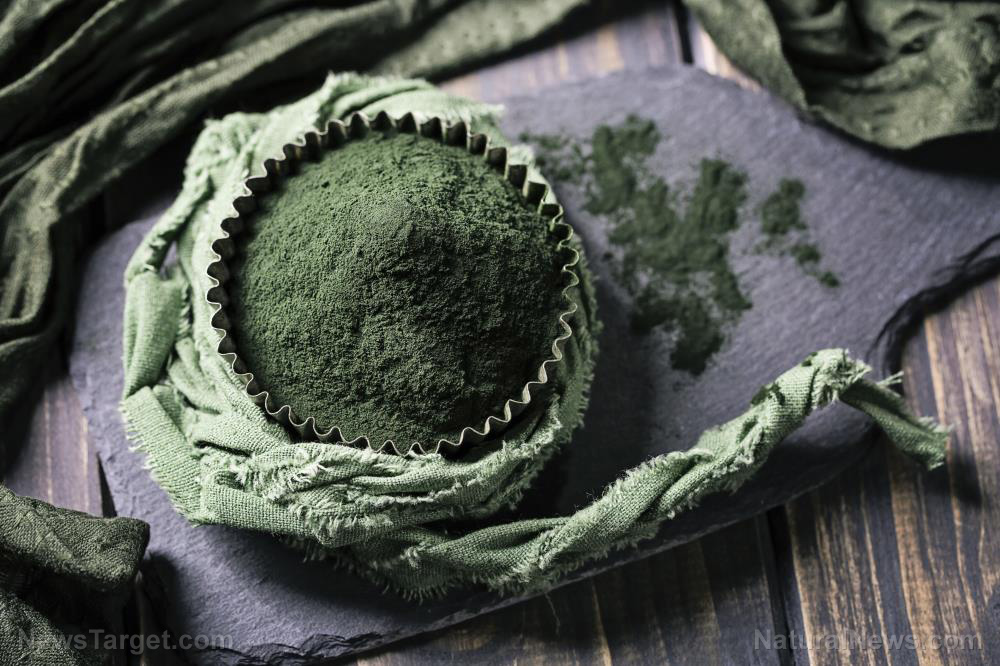New health risk: Exposure to PBB chemicals can compromise your immune system
05/30/2019 / By Isabelle Z.

Exposure to polybrominated biphenyls, also known as PBBs, has long been known to be dangerous, but now scientists have uncovered yet another negative effect: immune system damage.
PBBs are chemicals that were added to the plastics used in making TVs, textiles, foams and computer monitors to make them more fire-resistant. Although they are no longer made because of their dangers, they can still be found in our environment because they take a long time to degrade. Many of these chemicals made their way into the water, soil and air during their manufacture.
These days, most people’s exposure comes from ingesting foods or drinks that were contaminated with PBBs. This is particularly true of those living in lower Michigan, where animal feed was contaminated with the chemicals. Those living near waste sites that contain PBBs are also at risk due to air contamination.
A recent study in the journal Epigenetics found that more than 1,800 places in the epigenome are associated with the PBB levels in blood, and exposure is believed to have an impact on them. In particular, lead researcher Dr. Michele Marcus said that the findings suggest PBB exposure affects immune system functioning. It is also believed to act in a similar way to the hormone estrogen.
This adds to the growing body of evidence that these chemicals can harm your health in many ways. Past studies have shown that PBBs affect hormones and can cause problems like miscarriages, early puberty, thyroid problems and breast cancer. They can also cause skin problems, and animal studies have shown exposure can affect the nervous system, kidneys and liver. The International Agency for Research on Cancer considers PBBs possibly carcinogenic, and they have been shown to cause liver cancer in studies on mice and rats.
The power of the elements: Discover Colloidal Silver Mouthwash with quality, natural ingredients like Sangre de Drago sap, black walnut hulls, menthol crystals and more. Zero artificial sweeteners, colors or alcohol. Learn more at the Health Ranger Store and help support this news site.
Serious mix-up responsible for large part of today’s PBB exposure
Michigan has a PBB Registry that keeps track of the chemical’s effects. In 1973, PBB was accidentally mixed with animal feed at the Velsicol Chemical Company and shipped to feed mills and farmers across the state. It was then consumed by pigs, chickens, and cattle, making its way into eggs, beef and milk as well as other farm products. It took a year for the problem to be discovered, and countless people were exposed to it in the meantime. The symptoms started appearing gradually, and at first it was unknown why animals were starting to die and develop deformities. Thousands of pigs, cattle and sheep, along with 1.5 million chickens, were impacted, many of which became deathly ill. It not only builds up in the body and the environment, but it can also be passed on to children who are exposed by their mothers.
Concerned about PBBs and immunity?
If you’re concerned about PBB exposure – especially if you or your parents lived in Michigan during or after the accident – blood tests can determine exposure. You can also register to participate in PBB health research and the Michigan PBB Registry.
The CDC’s Agency for Toxic Substances & Disease Registry recommends that people avoid consuming fish or wildlife that was caught in contaminated areas. In addition, children should be discouraged from playing near waste sites.
You can help alleviate the effects of chemical exposure on your immune system by eating a diet that is high in organic vegetables and fruits. Foods rich in vitamin C, like citrus fruits, red peppers, broccoli and kiwis, are particularly good choices. Exercise regularly, and maintain a healthy weight. Don’t smoke, and only drink alcohol in moderation if you want to keep your immune system running efficiently.
Sources for this article include:
Tagged Under: carcinogens, chemicals, dangerous chemicals, disease causes, exposure, food supply, immune system, immunity, Liver cancer, PBBs, polybrominated biphenyls, toxic chemicals, toxic water, toxins



















